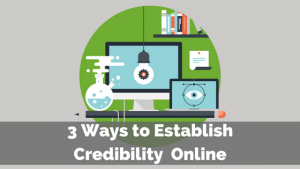When most people think about starting a business, psychology doesn’t normally come to mind. Most business owners get started knowing nothing about psychology, and many of them do well. However, learning more about psychology can have some surprising benefits for business owners—benefits that can sometimes make it worth taking a few psychology courses, or even going back to school for a psychology degree. Here are 5 compelling ways learning about psychology can help small business owners.
Support & Motivate Employees
Unless you’re running a business of one, you’ve made yourself into a leader as a small business owner, whether you like it or not. It’s your responsibility to support and motivate your employees so that they can, in turn, support your business. People who are happy at work are more productive and provide better service, which can translate into better reputation and increased profits.
Learning about psychology will help you to become a better leader, because you’ll understand what your employees need from you. You’ll be able to ask the right questions, provide appropriate support, and understand what motivates people to do their best work. Effective leadership can mean the difference between business success and failure, so learning at least the basics of psychology is key.
Better Understand Wants Vs. Needs
Simple economics define the difference between wants and needs for consumers. Depending on your business, you may be furnishing a want or a need—or some combination of the two. For instance, we all need food to survive, but most of us have a large range of choices in what we can—and want—to eat. Understanding where your product or service lands on this scale can help you make better marketing decisions or improve what you offer. Psychology plays a large role in wants vs. needs, and leveraging that can help you improve your bottom line over time.
Expand Your Market Intelligence
You can’t succeed in business without loyal customers, and you can’t inspire loyalty without understanding your customers on a deep level. Learning how people think will help you identify your ideal customers and expand your market intelligence. You’ll be able to base your answers to questions about your customers based on psychology, rather than instinct. Who are your customers? How do they think? What makes them tick? Effective market intelligence collection involves a combination of data and psychology. Once you have the data, you can draw on what you know about psychology to make informed decisions.
Personalized Products & Services
In our automated world of algorithms, we now expect companies to cater to our needs without us having to tell them. Thanks to the mobile revolution, businesses can get more information about their customers than ever, and use it to personalize products, services, and promotions. But it’s not all about the raw data—you need to know the psychology behind behavior as well.
By understanding how your customers think, you can personalize products and services without the consumer ever having to ask ahead of time—you could send deals to their inbox or smartphone without them having to put in any effort at all.
Even the illusion of more personalization improves consumers’ experiences. One study used restaurant waiters and complimentary mints to illustrate its effect on tipping: just bringing the mints to the table with the check resulted in a 3% tip increase while bringing them separately increased tips to 14%. Bringing another few mints around “just in case” after the check resulted in a 23% tip increase!
Tell Better Stories
Effective marketing, for small businesses and large corporations alike, is based on storytelling. Think about it: the most compelling recipes are the ones that have a story behind them. Did Great-great-great Grandma once impress the king of France with her cookies? That’s far more interesting than a simple recipe and a photograph. The same is true for products—many founders talk about what inspired them to create their products—they tell a story, and back it up with a uniquely valuable product.
To draw customers to your product or service, you need to use storytelling. Psychology will help you better understand key narrative value points (overcoming adversity, helping others in need, betting on yourself and taking a risk) which you can use to improve your brand story. Connecting with customers on an emotional level like this will inspire them to continue coming to you again and again.
References:
Big Data and the Psychologist’s Role on the Analytical Team
Description of Psychology: Exploring the Modern Field
How Psychology Can Make You a Better Boss
How Understanding Behavioral Psychology Can Help Your Business Blossom
Business & Finance Articles on Business 2 Community(48)






